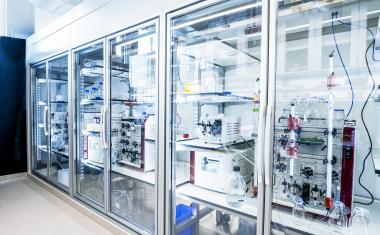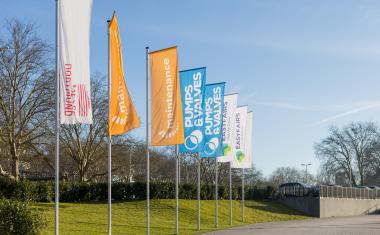Ammonia Producers may Cut Output to Save Gas
After Russia announced further cuts in its gas supply to Germany starting Jul. 27, ammonia producers were weighing plans to curb output of the commodity, for which natural gas is the key feedstock.
Germany’s largest ammonia manufacturer, SKW Piesteritz, as well as Ineos, which is in fourth place, have said they may curb production of the commodity at domestic sites.
Suppliers of the fertilizer industry additionally have warned that ammonia prices for next year’s growing season could be sharply higher. Most ammonia consumption goes to make nitrogen fertilizers but other uses include diesel exhaust fluid and engineering plastics, figures show.
SKW told Reuters it could cut output at each of its two production lines for ammonia and urea by no more than 20% before having to suspend output entirely. Several industry players, including BASF, told the news agency they were now providing CO2 through industrial gases producers.

BASF may buy, rather than make, ammonia
Speaking to journalists to discuss second-quarter 2022 financial results, BASF CEO Martin Brudermüller confirmed a Reuters report that the world’s largest chemical producer may consider further output cutbacks.
In view of the prospect of gas allocation in Germany, the CEO suggested that it could make more sense to buy ammonia than make it. At the same time, he said the Ludwigshafen group could potentially throttle production lines for syngas and basic petrochemical acetylene.
Worldwide, BASF can turn out roughly 1.7 million t of ammonia annually. Its headquarters site is not Germany’s largest producer, but it is the country’s largest consumer, Brudermüller acknowledged. Analysts calculate that the vast complex is responsible for the lion’s share of demand.
While the BASF chief stressed the importance of natural gas for chemical production, he noted that the world’s largest chemical producer is working to substitute fuel oil for gas in production of electricity and steam in Ludwigshafen, where possible. This, he said, could replace around 15% of its natural gas demand.
In the near term, the German chemical industry does not see itself in a position to switch to renewables, including biomethane, for heating and energy, despite increasing efforts in this direction.
The country’s chemical industry association Verband der Chemischen Industrie (VCI) recently welcomed the government’s decision to allow coal-fired power plants to stay online as the gas crunch continues; however, Brudermüller said BASF no longer operates coal-fired plants in Europe.
In late June, Germany implemented phase 2 of an emergency plan aimed at increasing gas reserves after Russia first reduced its deliveries via the Nord Stream 1 pipeline to 40% of capacity. In anticipation of further reductions, EU member states this week reached agreement to cut gas use by 15% before President Vladimir Putin’s flips the switch to Off.
Germany meanwhile has devised an auction system that would begin before summer’s end and encourage industrial consumers and suppliers to sell surplus gas back to the grid. Carmaker Mercedes Benz has signaled interest, and BASF is rumored to also be interested.
BASF raises full-year business forecast
Despite the increasing clouds on the horizon, BASF has revised its full-year global business outlook upward. For 2022, management is forecasting sales of €86-89 billion and EBIT before special items of €6.8–7.2 billion.
In this year’s second quarter, sales revenue rose by just over 16% to €23 billion, and EBIT before special items held up at €2.3 billion, in line with the 2021 quarter. In the second half of 2022, Brudermüller said BASF anticipates a gradual cooling of economic development globally that should be more pronounced in Europe.
Author: Dede Williams, Freelance Journalist


















